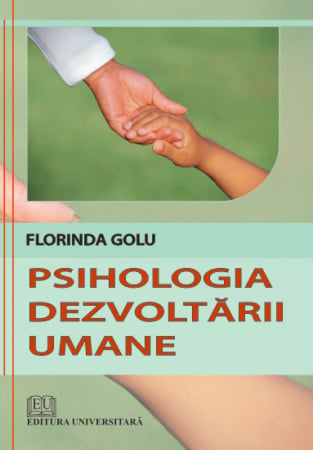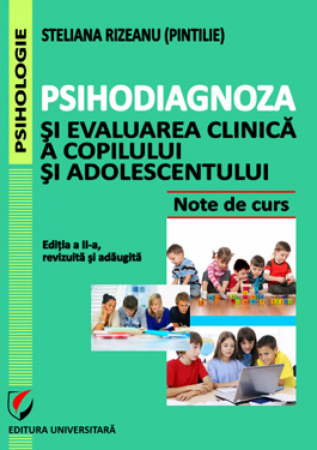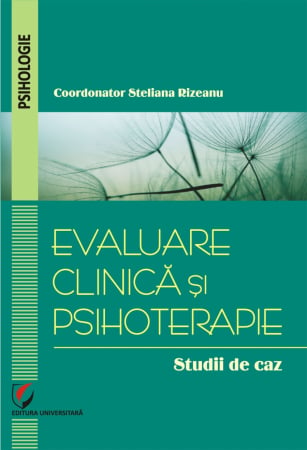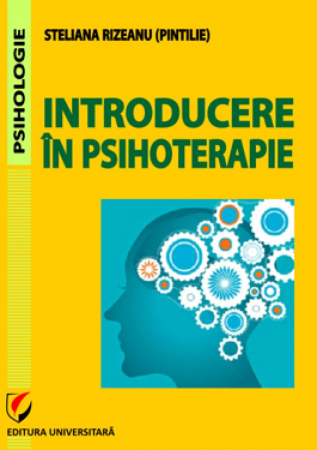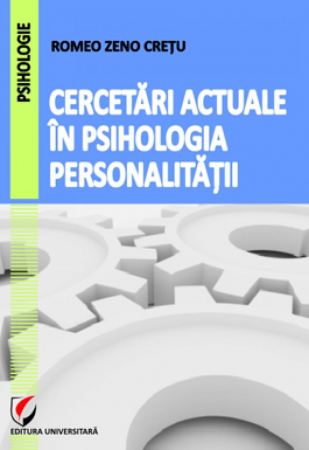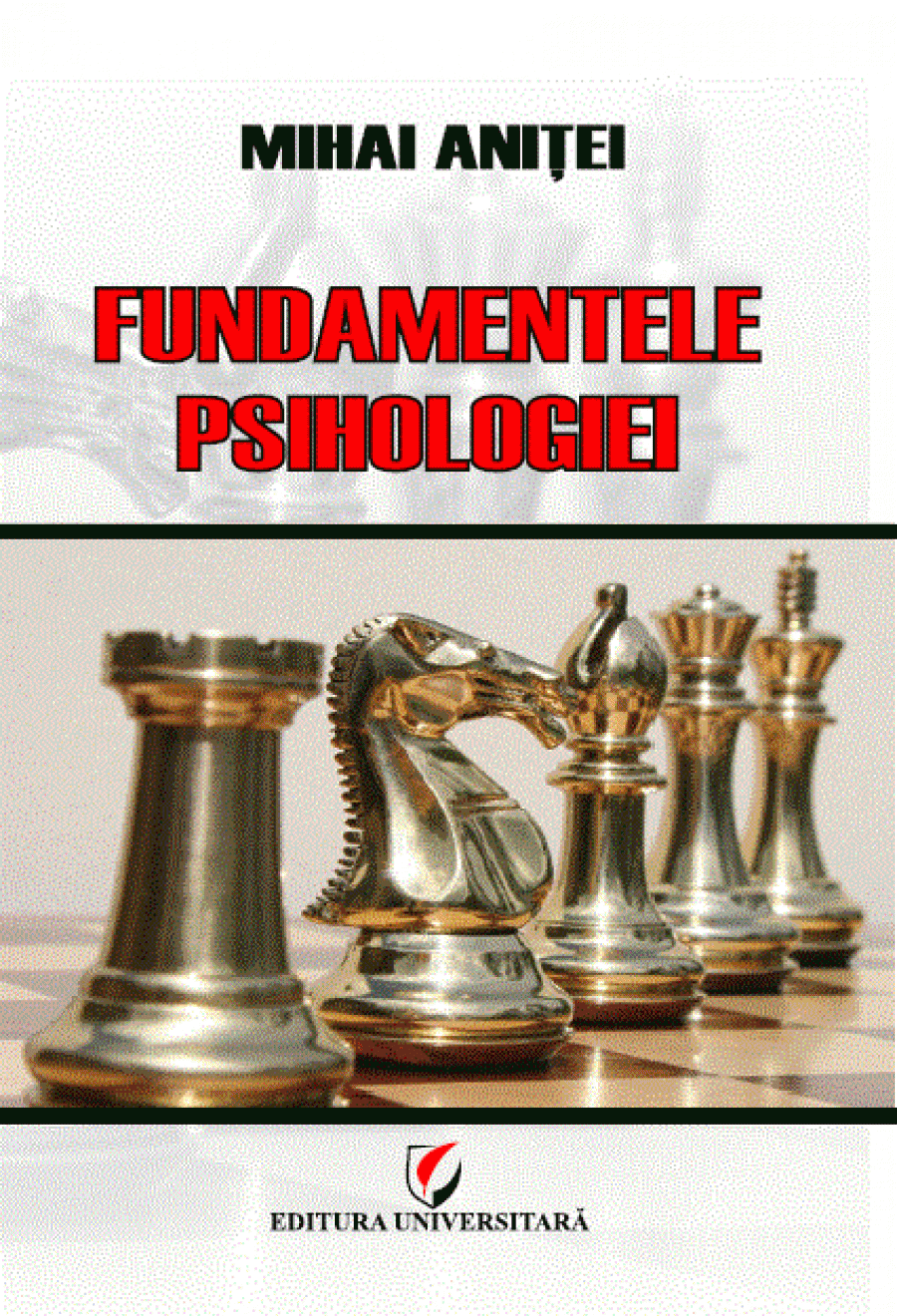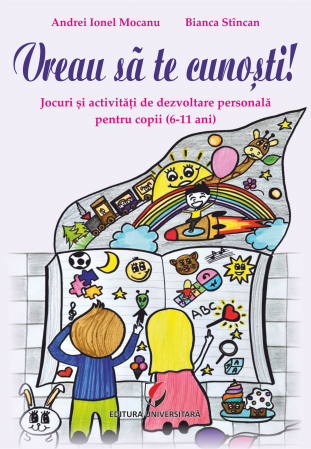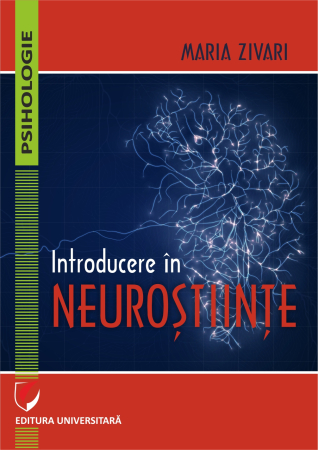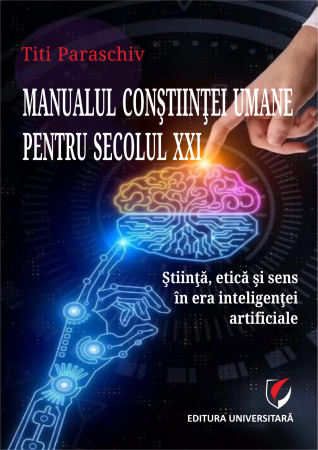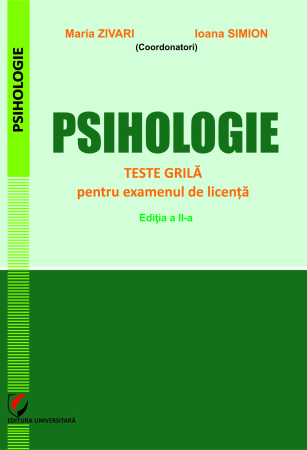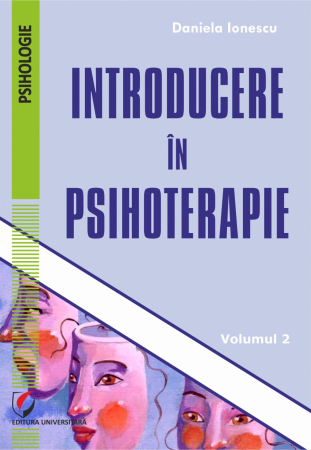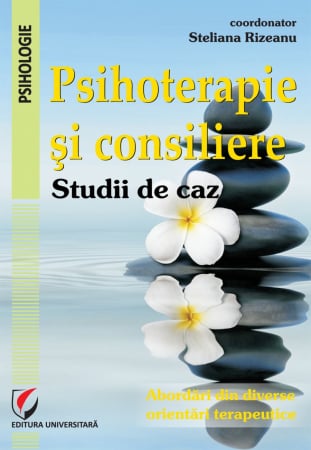ISBN: 978-606-28-1164-8
DOI: https://doi.org/10.5682/9786062811648
Publisher year: 2020
Edition: I
Pages: 286
Publisher: Editura Universitară
Author: Steliana Rizeanu, Cristiana Haica
- Description
- Download (1)
- Authors
- Content
- More details
- Reviews (0)
In the context of a developing nation that wants to become a developed, high-tech nation, counseling is extremely useful to people in various situations.
This volume is addressed primarily to master students in psychology, psychologists with counseling skills, psychotherapy, clinical psychology, but also to those people who by nature provide support: those who need counseling skills as an integral part of their professional roles ( coach, nurses, midwives, doctors, paramedics, volunteers in support groups, or emergency telephone lines). In addition, the book can be used as an introduction to counseling skills for those who intend to train as counseling psychologists.
The book is divided into eighteen chapters - the first six of them are intended to present, among other things, skills needed for counseling, to make a difference between counseling, psychotherapy and clinical psychology, to differentiate between the clinical approaches in which we deal with one or more clients, but also to lay the foundations for understanding the use of counseling skills in a more general context. The following chapters - with a more pronounced applicative character, contextualize according to more specific situations use counseling skills and propose counseling techniques and activities that the counselor can perform in practice.
-
Psychological Counseling
Download

STELIANA RIZEANU is a PhD professor in psychology at Hyperion University of Bucharest, Faculty of Psychology and Educational Sciences, where she teaches: Psychological Counseling, Personality Disorders, Introduction to Psychotherapy, Psychodiagnosis and Clinical Assessment of Child and Adolescent Psychology.
Senior clinical psychologist, supervisor in clinical psychology and senior psychotherapist in cognitive-behavioral therapy at the Aquamarine Clinic in Bucharest.
Coordinator of the Responsible Gaming program in Romania, which offers psychological counseling to people addicted to gambling.
Author of the books: Gambling Addiction, Help Guide for Pathological Gamblers and Their Families, Introduction to Psychotherapy, Pathological Gambling Psychotherapy, Psychodiagnosis and Clinical Assessment of Child and Adolescent. Note curs, Pathological gambling in Romania. Psychological profile of the Romanian pathological gambler, Personality disorders. Diagnosis and treatment methods.

CRISTIANA HAICA is a senior clinical psychologist, CBT psychotherapist, university professor of the Faculty of Psychology of Hyperion University, where she holds the seminars: Introduction to psychotherapy, Addiction Psychology, Fundamentals of psychology.
Trainer in clinical psychology, with 20 years of clinical experience that includes scientifically validated specialized services, administered individually, in pairs or in groups, addressed to children, adolescents and adults either in private practice or in prestigious clinics in the country.
PREFACE / 9
CHAPTER I
INTRODUCTION TO PSYCHOLOGICAL COUNSELING / 11
1.1 What is psychological counseling (versus psychotherapy / clinical psychology) / 11
1.2 Competences of the counseling psychologist / 16
1.3 Necessary skills for the counselor and the psychologist-client relationship / 19
1.4 General framework of psychological counseling - objectives, principles, functions, stages / 25
CHAPTER II
INDIVIDUAL COUNSELING / 40
CHAPTER III
COUPLE COUNSELING / 47
CHAPTER IV
FAMILY COUNSELING / 61
CHAPTER V
GROUP ADVICE / 75
CHAPTER VI
CHILD AND ADOLESCENT COUNSELING / 80
6.1. The general context of the minor 's counseling / 80
6.2. Objectives in the counseling of the minor / 81
6.3. Theoretical perspectives that can be the basis of psychological approaches in counseling minors / 82
6.4. Particular aspects specific to the counseling of children and adolescents / 92
6.5. Examples of techniques that can be used in counseling children and adolescents / 98
CHAPTER VII
PSYCHOLOGICAL COUNSELING IN CONFLICT / 106
CHAPTER VIII
PSYCHOLOGICAL ADVICE IN GAMBLING DEPENDENCE / 122
CHAPTER IX
PSYCHOLOGICAL COUNSELING IN CRISIS SITUATIONS / 136
CHAPTER X
PSYCHOLOGICAL COUNSELING IN MOURNING - LOSS / 147
CHAPTER XI
PSYCHOLOGICAL COUNSELING IN ONCOLOGY / 162
CHAPTER XII
PSYCHOLOGICAL COUNSELING IN INFERTILITY / 172
CHAPTER XIII
PSYCHOLOGICAL COUNSELING IN THE CASE OF LGB PEOPLE / 193
CHAPTER XIV
MULTICULTURAL COUNSELING / 200
CHAPTER XV
PSYCHOLOGICAL COUNSELING OF THE ELDERLY / 203
CHAPTER XVI
CAREER COUNSELING / 215
CHAPTER XVII
TECHNOLOGICAL ASSISTED PSYCHOLOGICAL COUNSELING / 221
CHAPTER XVIII
HIV / AIDS PATIENT ADVICE / 232
BIBLIOGRAPHY / 244
In the context of a developing nation that wants to become a developed, high-tech nation, counseling is extremely useful to people in various situations.
The number of people seeking the help of counselors to solve their problems in order to obtain a better quality of life is increasing. Among the reasons that bring people to counseling we often find personal or interpersonal problems, either in the family or at work, problems related to decision making, learning problems, difficulties in coping with life situations, addictions and other. Therefore, professional counselors in modern society have important roles to play, especially in a rapidly changing society, and its members need to adapt and adjust to such changes. These changes are not only specific to the economic, scientific and technological component, but also to the relationships between people both in the family and at work or on the street. Society change is the basis of a country's development. Different social problems exist directly or indirectly as a result of rapid changes in society.
This volume is addressed primarily to master students in psychology, psychologists with counseling skills, psychotherapy, clinical psychology, but also to those people who by nature provide support: those who need counseling skills as an integral part of their professional roles ( coach, nurses, midwives, doctors, paramedics, volunteers in support groups, or emergency telephone lines). In addition, the book can be used as an introduction to counseling skills for those who intend to train as counseling psychologists.
The book is divided into eighteen chapters - the first six of them: introduction to psychological counseling, individual counseling, couple and family counseling, group counseling, and child and adolescent counseling are intended to present, among other things, skills needed for counseling, to make a difference between counseling, psychotherapy and clinical psychology, to differentiate between the clinical approaches in which we deal with one or more clients, but also to lay the foundations for understanding the use of counseling skills in a more general context. The following chapters - with a more pronounced applicative character, contextualize according to more specific situations (counseling in conflict, gambling addiction, in crisis situations, in mourning-loss, counseling in oncology, in infertility, counseling for the elderly, people LGB, of people with HIV, multicultural counseling, but also career counseling and technologically assisted counseling) use counseling skills and propose counseling techniques and activities that the counselor can perform in practice.
It should be noted that each of these application chapters is designed as an introduction to the theories described and is intended to further stimulate interest in the topic presented, as well as provide an impetus for further research and reading.
The authors

6359.png)
![Psychological Counseling [1] Psychological Counseling [1]](https://gomagcdn.ro/domains/editurauniversitara.ro/files/product/large/rizeanu_consiliere-psiho_9-10-2020_bt-2993-1732.jpg)

